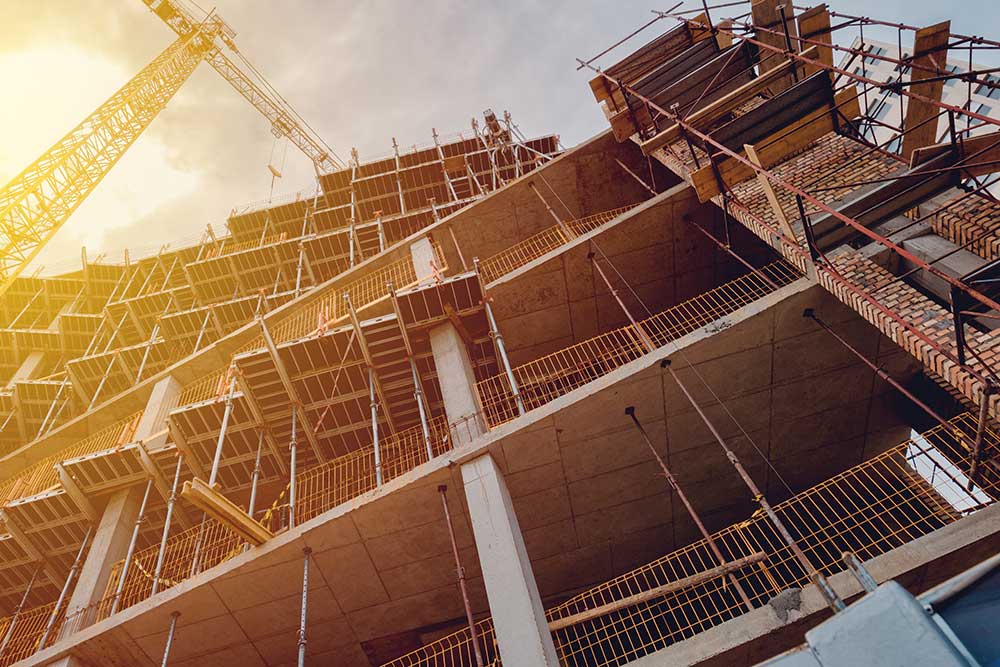Construction companies have felt the effects of the crisis; stalemates in projects as well as some other effects that are documented here.

The Coronavirus pandemic was believed to have begun around late 2019, and it has affected nearly every industry, stretching across manufacturing, health, education, tech, insurance, commerce, and travel and tourism. Industrial construction companies have also felt the effects of the crisis, which has caused a stalemate in construction projects. Nevertheless, even with such disruptions, industrial design companies are bringing services closer to their customers through smartphones that, despite logistical challenges, projects such as luxury house plans still have a chance to be resumed.
That said, here are the other effects that industrial construction companies are experiencing due to the current health crisis:
Industrial construction companies handle capital intensive projects. Sometimes, they need to seek financial aid from financial institutions to acquire the materials they need to push through with their projects. Since the emergence of the current crisis, project financing has witnessed a drastic reduction. Financial institutions fear a world of increasing uncertainty. Prospective delays in project commencement are some of the factors discouraging lenders from offering complete financial aid to these companies.
Normally, industrial construction is a worthwhile investment opportunity for potential investors. However, their investment decisions are dependent upon the state of the economy and the assurance of positive returns on investments. Although people who invest in industrial constructions might still pump in resources to purchase shares in this industry, they’re doing it with doubts because they aren’t sure when the economy will recover for construction projects to continue. Moreover, companies in the construction sector might have to put up with a tough bargain from competitive bids offered by rivals. This might push them to lower their bid, hence, earn reduced revenues.
Governments are implementing strict legislation to combat the crisis, and some of these measures are affecting the construction industry. For instance, at the onset of the crisis and as the number of people dying from the pandemic kept increasing, some governments instructed contractors to pause their projects. Meanwhile, it permitted contractors working in the essential service sector, like in constructing health facilities, to proceed. Every government is adjusting its control measures based on the state of the crisis within its boundaries.
Most countries across the world depend on major manufacturers and product assembly countries like China to acquire materials for their projects. For example, China has most of the world’s giant steel manufacturers. Majority of the manufacturers, international suppliers, and shipping companies in China had shut down to contain the virus and prevent how it affects them. Industrial construction companies usually rely on materials from China for their projects. Even when they were allowed to proceed with their projects, some couldn’t because they have to wait for shipments before they can proceed.
Whenever industrial companies engage in a project, they do their best to do it within a set timeframe. Nobody anticipated this current crisis to bring such vast changes in the industry. Unless governments intervene to save industrial companies from hefty fines for delayed projects, companies may still bear the responsibility for delays and meet the costs of overruns in their ongoing but stalled or progressively slow projects. Any industrial construction company signing a contract during this crisis should keenly examine the contract to ensure they don’t bear any responsibility that may arise from a matter that’s beyond human control.
The global economy has crumbled since the start of the Coronavirus crisis. The market is uncertain, and it isn’t even safe for companies in industrial construction to continue. The recession might intensify, with people, businesses, and organizations being rushed into coming up with response strategies to help them survive the crisis. Contractor bids for the few projects available become fierce as companies fight for scarce opportunities. Industrial construction companies should act decisively at this time and prepare for impending challenges ahead.
As a response to containing the rapid spread of the Coronavirus, governments of many countries and states across the world have introduced emergency responses, shutting down many parts of their territories to limit the movement of their people. In some extreme cases, people were locked in their towns and cities that they weren’t able to go to work. Most have been advised to work from home since the crisis began. All of these posed a significant challenge to the labor-intensive industrial construction sector.
Shutting down the public transport sector and limiting it only to essential service providers also had a massive impact that workers in the construction industry couldn’t get out from their homes to go to work even when they were allowed to work in construction projects permitted by their state governments.
The current crisis has hit industrial construction companies hard. It has affected labor supply, interfering with the workforce required in these company projects. The economic recession facing the world now has increased anxiety and panic decision-making, thus affecting economic activities and increasing competition for the few construction projects available. Contractors have stalled contracts and may have breached contract agreements due to external forces brought about by the crisis since they need to make up for their delays.
Project financing has also gone down because of the uncertainty in the construction industry. Dependence on materials supplied from major producers like China has also slowed the pace of construction projects because of reduced manufacturing activities and delayed shipping of the materials required.

Julie Jenkins
Julie Jenkins has a knack for home improvement projects, and has spent most of her life trying out and writing about them. Julie regularly publishes articles on her blog to help her readers with their home improvement projects.
Scott Ellyson, CEO of East West Manufacturing, brings decades of global manufacturing and supply chain leadership to the conversation. In this episode, he shares practical insights on scaling operations, navigating complexity, and building resilient manufacturing networks in an increasingly connected world.